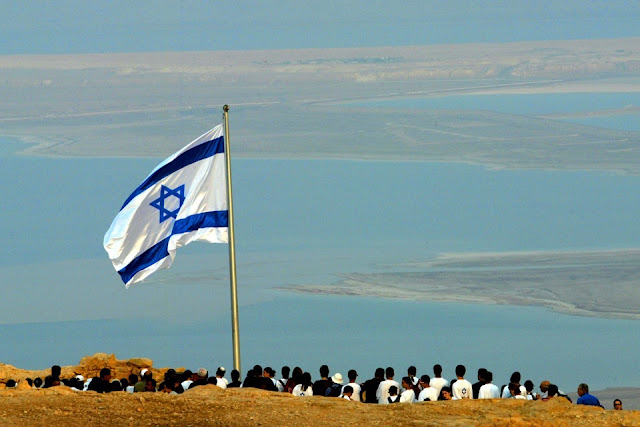Two new political developments in Gaza signal a possible
breakthrough in the long-standing conflict between Palestinians and Israelis: the election of a new leader of
Hamas’s political bureau who promises a “new Hamas” that is more “dynamic and
open-minded;” and a policy document, two years in the making, that advocates a
more moderate stance toward Israel.

Born in Gaza in 1962 to parents who fled their homeland when Israel was created in
1948, Haniya was jailed multiple times in the late 1980's during the First Intifada, a
largely nonviolent uprising, and later deported to Lebanon.
 Haniya rose to political prominence in 2006, when he led Hamas to a shock election victory
over Mahmoud Abbas, the head of the Palestinian Authority.
Haniya rose to political prominence in 2006, when he led Hamas to a shock election victory
over Mahmoud Abbas, the head of the Palestinian Authority.
Haniya stepped down
from the post of Prime Minister in 2014 after a reconciliation between Hamas in
Gaza and Fatah in the West Bank.
However, the position paper does not fully recognize
Israel, nor does it give up its goal of liberating all of Palestine. Despite
these confusing contradictions, the document does signal important changes, notably greater unity among Palestinians.
According
to Professor Mohammad Abu Saada of Gaza’s al-Azhar University, “Hamas is trying
to walk a fine line between its hardliners and its own moderates. In one way,
the moderates can say they accepted a Palestinian state on the 1967 borders,
but the hardliners can still say they are not recognizing Israel.”
The new document also attempts to calm the fears and distrust
of Israelis, affirming that the Palestinian struggle is not with the Jewish
people or the Jewish religion, but rather, it is against the “Zionist project”
-- the Israeli state and its citizens who occupy Palestinian lands.
So far, however, the Israeli political leadership is not willing
to budge. Israel rejected the document even before it was made official,
calling it an attempt by Hamas to trick the world into believing it was
becoming a more moderate group.
In the U.S., where presidents have long desired to create
a lasting peace between Israelis and Palestinians, Donald Trump is no
exception. But his upcoming visit to Israel, theoretically about combating
religious extremism and advancing peace, is likely to inflame tensions further,
given his choice of the location of his major speech, the hilltop fortress of
Masada, one of the ultimate symbols of Zionist nationalism. This is the spot where, in the first century, 960 Jewish rebels chose to commit suicide rather than die at the hands of Roman army.






